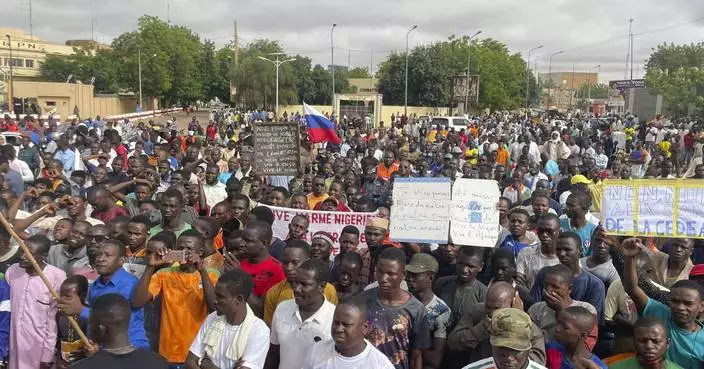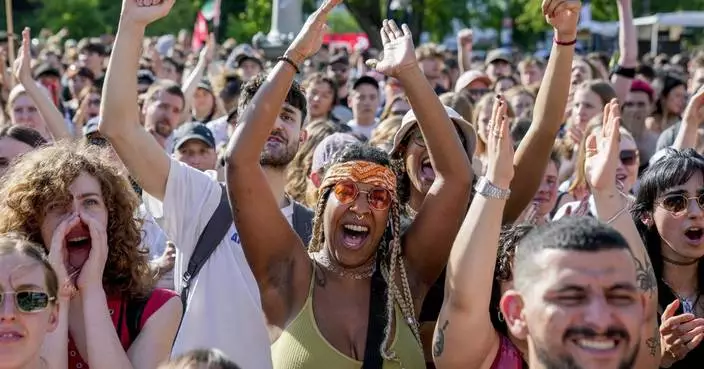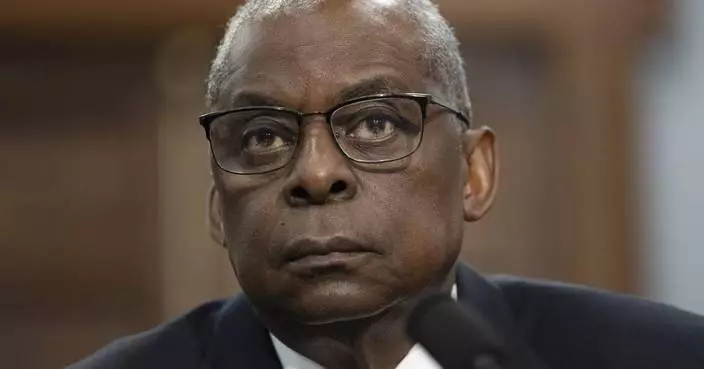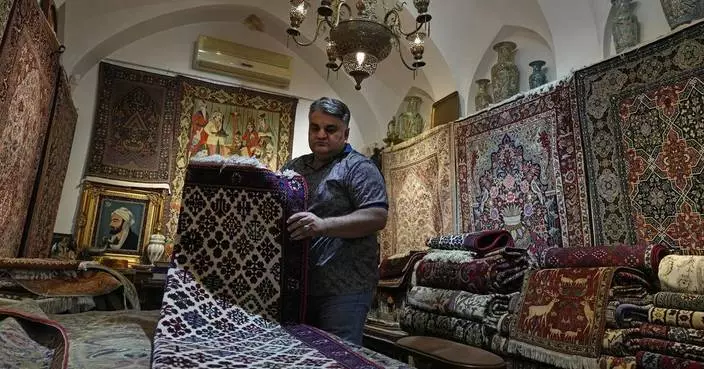Amid talk of a U.S. troop withdrawal from Afghanistan, the U.S. envoy talking to the Taliban said Thursday that America is not "cutting and running" from its longest war and that women will continue to have seats in peace talks to end nearly 18 years of fighting.
Zalmay Khalilzad addressed an audience in Washington on a video link from Qatar where a two-day all-Afghan conference concluded Tuesday with a statement that offered a roadmap for the country's future. The Washington event was heavily focused on raising the voices of women who fear any peace accord with the Taliban will rollback gains they've made and return them to the days of repressive Taliban rule,
"We would like to leave a very positive legacy here," said the U.S. envoy, who was born in Afghanistan. "We are not cutting and running. We're not looking for a withdrawal agreement. We're looking for a peace agreement. And we're looking for a long-term relationship and partnership with Afghanistan."
The Taliban refuses to meet with the current Afghan government, but there are ongoing discussions about peace.
Khalilzad has held eight rounds of U.S. talks with the Taliban and there have been all-Afghan meetings, including the last one in Doha, the capital of Qatar, where Afghans from all walks of life met to discuss grievances and find common ground about the future for their nation.
A statement released at the end of the conference said that a post-war Afghanistan would have an Islamic legal system, protect women's rights "within the Islamic framework of Islamic values," and ensure equality for all ethnic groups.
Alice Wells, acting assistant secretary of state for Central and South Asian Affairs, who attended the event at Georgetown University, said no current or future Afghan government should count on international donor support if it "restricts, represses or relegates Afghan women to second-class status."
In his talks with the Taliban, Khalilzad said there has been progress on four fronts: getting assurances from the Taliban that Afghanistan will not become a staging ground again for militant groups like al-Qaida or the Islamic State; the withdrawal of U.S. troops, which currently number 14,000; having an all-Afghan dialogue to reach agreement on a peaceful future; and a permanent ceasefire to end the fighting.
He wants the U.S. talks with the Taliban to reach fruition by Sept. 1, which would allow the withdrawal of U.S. and NATO troops. That would open the door to more difficult negotiations.
That's where the many sides of Afghanistan's protracted conflict would sit down to hammer out the details of what an Islamic system will look like, what constitutional reforms would be made and what would become of the many local militias affiliated with the country's powerful warlords. Those talks also would have to tackle how women's rights fit into the definition of the "Islamic values."
Roya Rahmani, Afghanistan's first female ambassador to the United States, expressed hope for peace, but said there's still no dialogue between the Taliban and the current Afghan government. She predicted tough periods of negotiation ahead and said whatever deal is made needed to be implemented by a "strong central government."
The talks have created both optimism and anxiety, especially among women.
Ghizaal Haress, assistant professor of law at the American University of Afghanistan who spoke via Skype from Kabul, said the Taliban must guarantee that the rights of women and minorities, which currently are protected in the Afghan constitution, are preserved.
"If we leave it to broad interpretation or to the broad idea of women's 'Islamic values' then we're going to be in trouble as we have experienced it" under Taliban rule in the past, she said.
Asila Wardack, a member of the Afghan peace council who attended the conference in Doha, said it appears the Taliban are embracing more modern views of women. Via Skype from Kabul, she said she still worries that they have not changed their hardline ideology and claimed a deeper trust between the parties was needed for the negotiations to be successful.
Doha was the first time Wardack had met the Taliban negotiating team.
"They approached us. They didn't shake hands," she said.
Later, Wardack said two of the Taliban representatives walked up to the women at the conference and said they had heard that a group of "dangerous women" were going to be at the meeting.
"They literally used the word 'dangerous women,'" Wardack said. She said one Taliban member then said: "Please don't give us a hard time."
WASHINGTON (AP) — Israel this week briefed Biden administration officials on a plan to evacuate Palestinian civilians ahead of a potential operation in the southern Gaza city of Rafah aimed at rooting out Hamas militants, according to U.S. officials familiar with the talks.
The officials, who were not authorized to comment publicly and requested anonymity to speak about the sensitive exchange, said that the plan detailed by the Israelis did not change the U.S. administration’s view that moving forward with an operation in Rafah would put too many innocent Palestinian civilians at risk.
Israeli Prime Minister Benjamin Netanyahu has vowed to carry out a military operation in Rafah despite warnings from President Joe Biden and other western officials that doing so would result in more civilian deaths and worsen an already dire humanitarian crisis.
The Biden administration has said there could be consequences for Israel should it move forward with the operation without a credible plan to safeguard civilians.
“Absent such a plan, we can’t support a major military operation going into Rafah because the damage it would do is beyond what’s acceptable,” U.S. Secretary of State Antony Blinken said late Friday at the Sedona Forum, an event in Arizona hosted by the McCain Institute.
Some 1.5 million Palestinians have sheltered in the southern Gaza city as the territory has been ravaged by the war that began on Oct. 7 after Hamas militants attacked Israel, killing 1,200 people and taking about 250 hostages.
The United Nations humanitarian aid agency on Friday said that hundreds of thousands of people would be “at imminent risk of death” if Israel moves forward with the Rafah assault. The border city is a critical entry point for humanitarian aid and is filled with displaced Palestinians, many in densely packed tent camps.
The officials added that the evacuation plan that the Israelis briefed was not finalized and both sides agreed to keep discussing the matter.
White House press secretary Karine Jean-Pierre told reporters on Friday that no “comprehensive” plan for a potential Rafah operation has been revealed by the Israelis to the White House. The operation, however, has been discussed during recent calls between Biden and Netanyahu as well as during recent virtual talks with top Israeli and U.S. national security officials.
“We want to make sure that those conversations continue because it is important to protect those Palestinian lives — those innocent lives,” Jean-Pierre said.
The revelation of Israel's continued push to carry out a Rafah operation came as CIA director William Burns arrived Friday in Egypt, where negotiators are trying to seal a cease-fire accord between Israel and Hamas.
Hamas is considering the latest proposal for a cease-fire and hostage release put forward by U.S., Egyptian and Qatari mediators, who are looking to avert the Rafah operation.
They have publicly pressed Hamas to accept the terms of the deal that would lead to an extended cease-fire and an exchange of Israeli hostages taken captive on Oct. 7 and Palestinian prisoners in Israeli jails.
Hamas has said it will send a delegation to Cairo in the coming days for further discussions on the offer, though it has not specified when.
Israel, and its allies, have sought to increase pressure on Hamas on the hostage negotiation. Signaling that Israel continues to move forward with its planning for a Rafah operation could be a tactic to nudge the militants to finalize the deal.
Netanyahu said earlier this week that Israeli forces would enter Rafah, which Israel says is Hamas’ last stronghold, regardless of whether a truce-for-hostages deal is struck. His comments appeared to be meant to appease his nationalist governing partners, and it was not clear whether they would have any bearing on any emerging deal with Hamas.
Blinken visited the region, including Israel, this week and called the latest proposal “extraordinarily generous” and said “the time to act is now.”
In Arizona on Friday, Blinken repeated remarks he made earlier this week that "the only thing standing between the people of Gaza and a cease-fire is Hamas.”
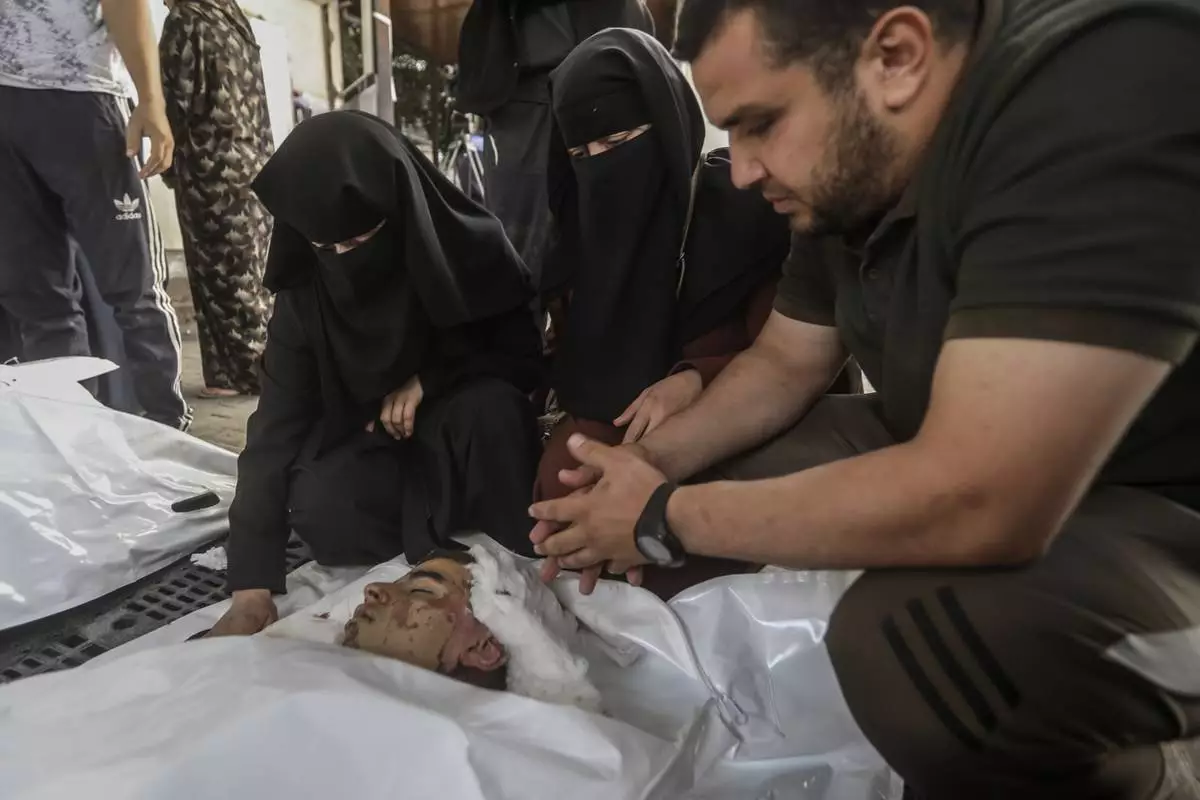
The Chahine family prepares to bury two adults and five boys and girls under the age of 16 after an overnight Israeli strike in Rafah, southern Gaza Strip, Friday, May 3, 2024. An Israeli strike on the city of Rafah on the southern edge of the Gaza Strip killed several people, including children, hospital officials said Friday. (AP Photo/Ismael Abu Dayyah)
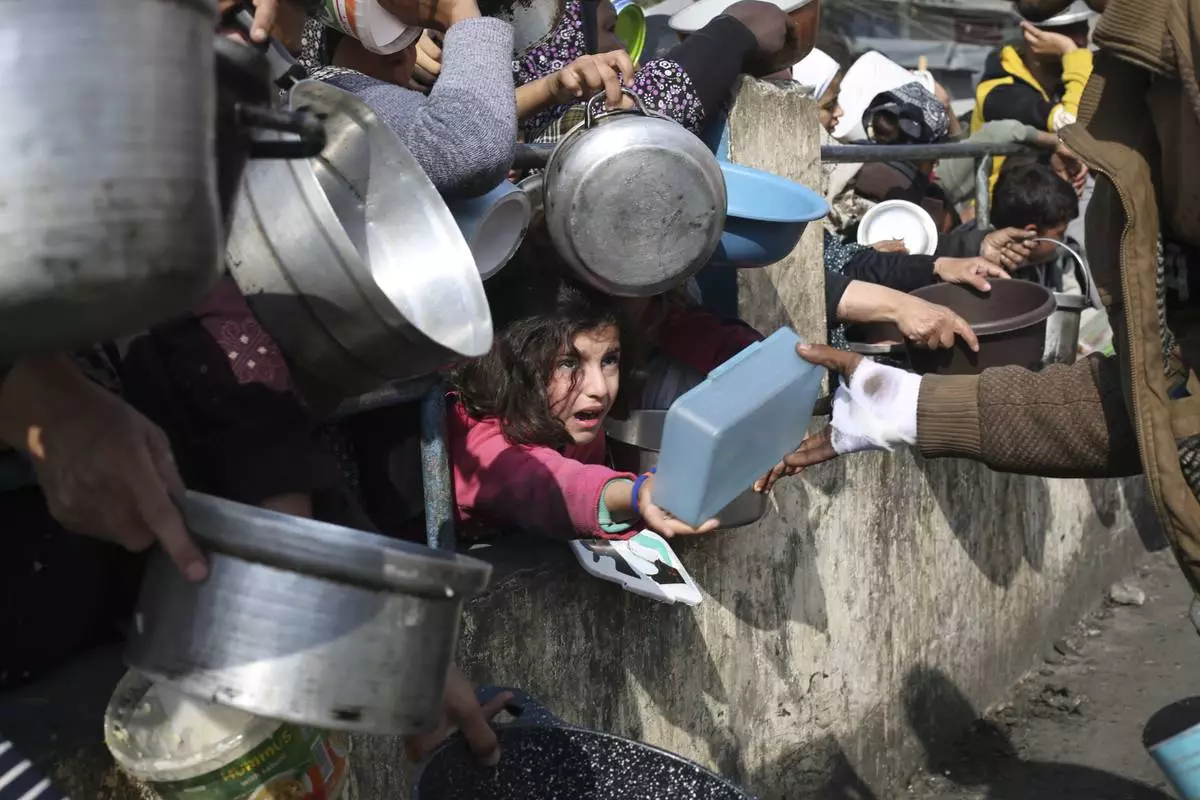
FILE - Palestinians line up for free food during the ongoing Israeli air and ground offensive on the Gaza Strip in Rafah, Jan. 9, 2024. A top U.N. official said Friday, May 3, 2024, that hard-hit northern Gaza was now in “full-blown famine" after more than six months of war between Israel and Hamas and severe Israeli restrictions on food deliveries to the Palestinian territory. (AP Photo/Hatem Ali, File)

Palestinians rescue a woman survived after the Israeli bombardment on a residential building of Abu Alenan family in Rafah, southern Gaza Strip, early Saturday, May 4, 2024. (AP Photo/Ismael Abu Dayyah)

President Joe Biden walks across the South Lawn of the White House as he talks with White House press secretary Karine Jean-Pierre Thursday, May 2, 2024, in Washington, after returning from a trip to North Carolina. (AP Photo/Mark Schiefelbein)








